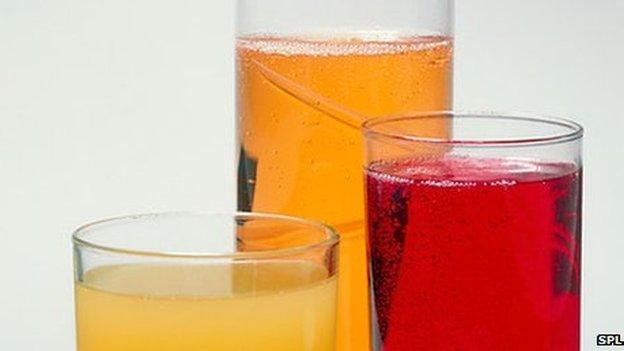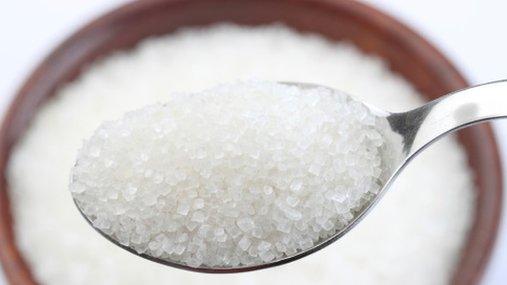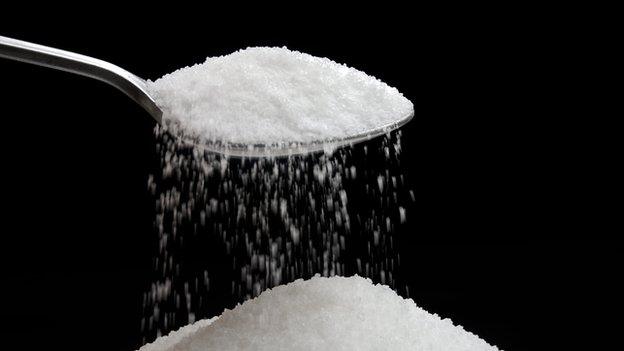'21,000 to lose weight' with pop tax claims Plaid Cymru
- Published
Elin Jones says a tax on sugary drinks would have a significant effect on obesity
A 20% tax on sugary drinks could cut the number of obese people in Wales by 8,300 and those overweight by 13,300, research for Plaid Cymru suggests.
The study also estimates the tax might raise £45m a year, which the party say could help employ 1,000 extra doctors.
But there is also a warning in the study that the extra tax is likely to hit people on lower incomes hardest.
First Minister Carwyn Jones criticised Plaid's "pop tax" arguing it is not a "sensible" long term policy.
The policy was first announced by Plaid Cymru leader Leanne Wood at her party's annual conference last October.
The research, by LG Research, is based on existing studies of how a sugary drinks tax might work.
The findings include:
A 20% levy in Wales would reduce obesity by 8,300 people (-1.2%) and the overweight by some 13,300 (-0.8%), the study estimates
Drink producers might find other ways to off-set the cost of the tax to their customers
The impact of new taxes on public health are also unpredictable and depend on the behaviour of individual consumers
Overall, taxes seeking to influence behaviour are a "promising area of government intervention", but any future Welsh government would need to carefully consider all aspects of a tax's potential impact
Plaid health spokeswoman Elin Jones said the research suggested a 20% tax could lead to a 15% reduction in consumption of sugary drinks.
"It's absolutely right for the state to look at taxation as a means of dis-incentivising bad habits by the population," she said.
"The state already does it in the context of tax on cigarettes, tax on alcohol.
"Now we think it's time that Wales can lead the way in putting additional tax on sugary drinks to reduce consumption of sugar, which is at too high a level in people's individual diet."

Fizzy drinks can contain up to 15 teaspoons of sugar
The policy was again dismissed by Carwyn Jones at First Minister's Questions on Tuesday.
"It's not sensible, in my view, to say that you're going to pay for a thousand doctors by ensuring people drink more pop," Mr Jones told AMs.
"It's not a very firm foundation on which to build a policy, namely that you must ensure that people drink more pop in order to have more doctors; less pop, fewer doctors.
"I don't see how that would work in the longer term."
The British Soft Drinks Association (BSDA) insisted such a tax would "neither have the health nor economic impact" suggested "not least because obesity stems from a range of factors, not one product".
BSDA director general Gavin Partington said: "In France a soft drinks tax led to an initial sales fall of 2% in 2012 but they rose in 2013 and are up 6% this year.
"Denmark scrapped its 'fat' tax when consumers travelled across the border to do their shopping and Belgium abandoned its plans, too, noting that there was no evidence that tax is effective."
- Published3 July 2014

- Published26 June 2014

- Published26 June 2014

- Published5 May 2014
